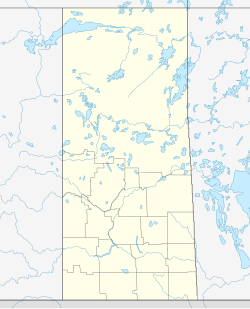Leroy | |
|---|---|
Town | |
 Aspen Street | |
Location of Leroy in Saskatchewan | |
| Coordinates: 52°00′07″N104°44′06″W / 52.002°N 104.735°W | |
| Country | Canada |
| Province | Saskatchewan |
| Census division | No. 10 |
| Rural Municipality | Leroy |
| Post office Founded | 1909-02-01 |
| Incorporated (Village) | N/A |
| Incorporated (Town) | N/A |
| Government | |
| • Mayor | Kurt Schreiner |
| • Administrator | Glenda Hamilton |
| • Governing body | Leroy Town Council |
| Area | |
• Total | 1.06 km2 (0.41 sq mi) |
| Population (2011) | |
• Total | 427 |
| • Density | 402.1/km2 (1,041/sq mi) |
| Time zone | CST |
| Postal code | S0K 2P0 |
| Area code | 306 |
| Highways | Highway 13 Highway 18 |
| Website | www |
| [1] [2] [3] [4] | |
Leroy is a town in the Canadian province of Saskatchewan.
Contents
- Sports and recreation
- Leroy Leisureland Regional Park
- Demographics
- Climate
- See also
- References
- External links
From 1905 to 1913 the area now known as LeRoy was a Local Improvement District. In 1913 the Local Improvement District was constituted as the Rural Municipality of Roach #339, as meetings were held at the home of James Roach. In 1914, it became the RM of Ayr #339, containing the Bogend Post Office, established in 1905, and Bogend School in 1907.
In August 1919 a Canadian Pacific Railway (CPR) blueprint showed the crossing of the proposed rail line to be built through the RM, so planning began for a town in that RM in the same year. The area was named Bogend and on January 21, 1920 it was renamed LeRoy. LeRoy was incorporated as a village on December 5, 1922. In March 1963 proclamation received declaring LeRoy a town. [5] [6]


